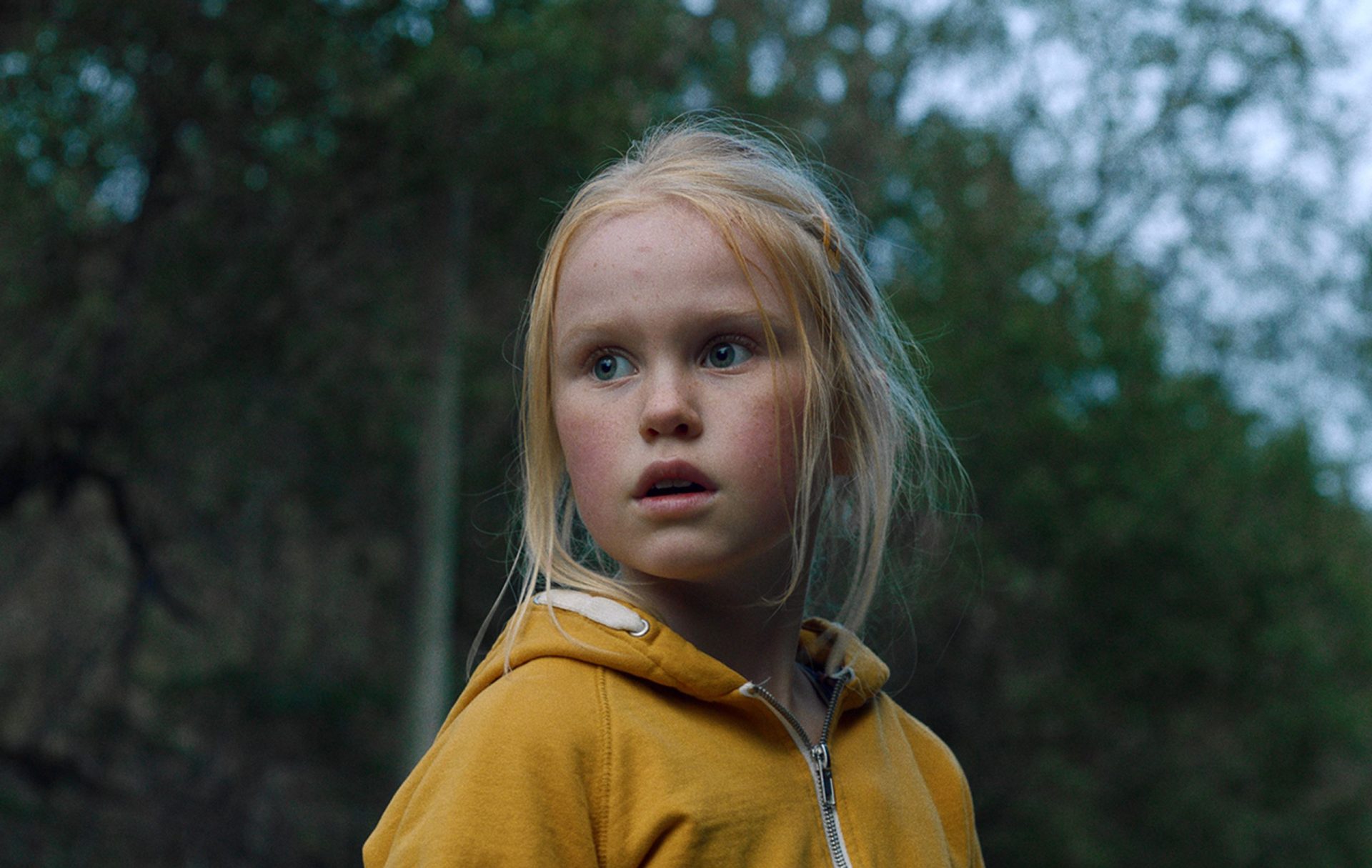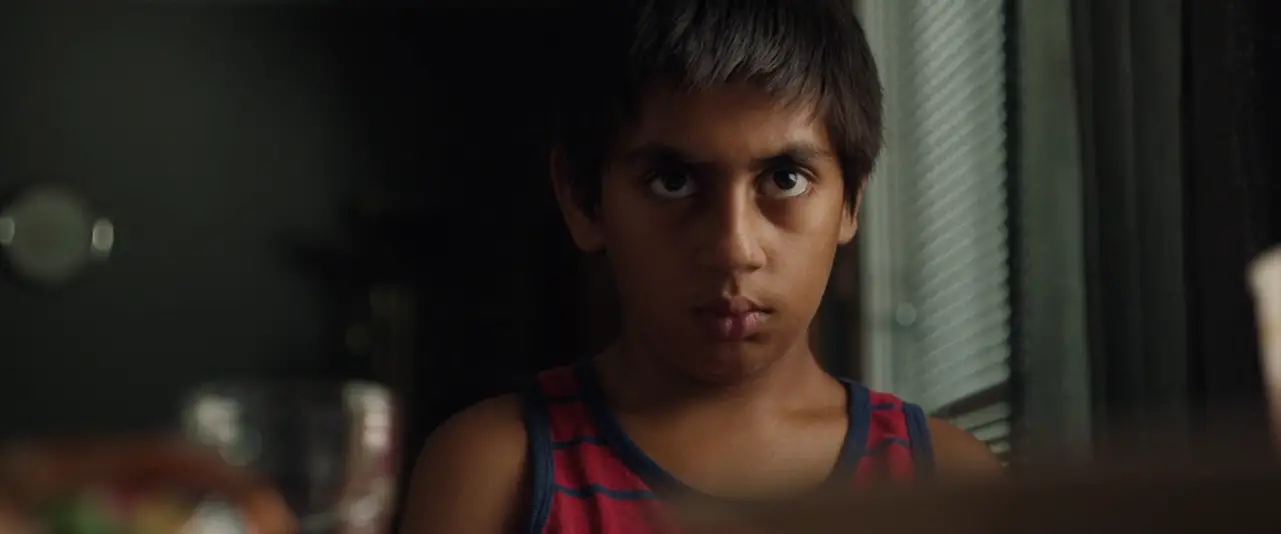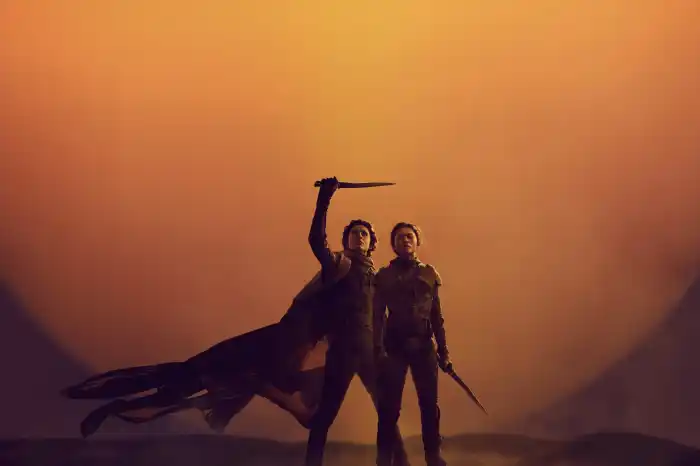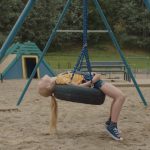‘The Innocents’ Review: “The Malevolence of Innocence”
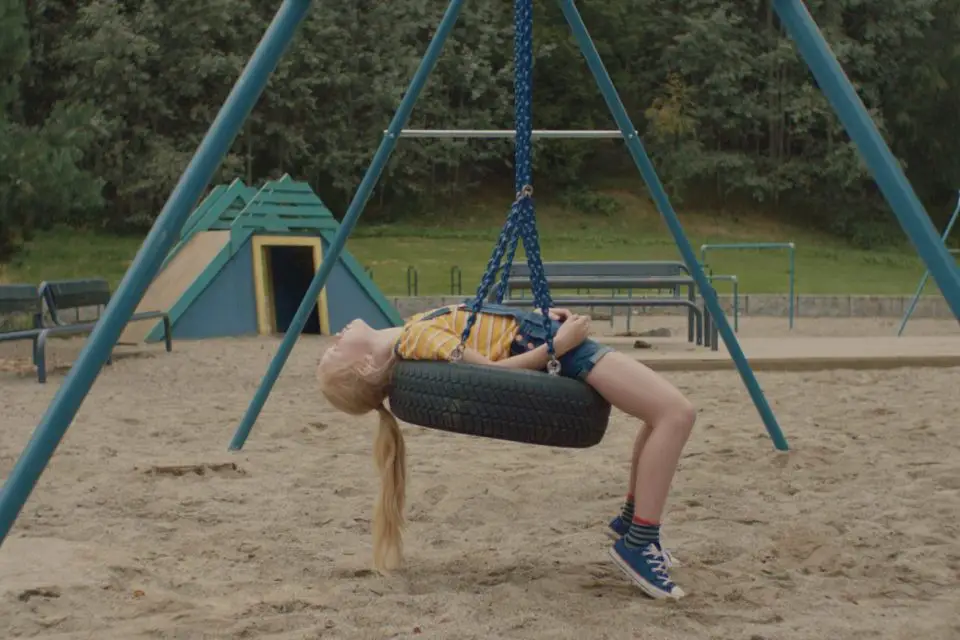
Eskil Vogt’s sophomore feature, The Innocents, is a slight improvement over his debut, Blind, and captures the energy of Joachim Trier’s Thelma, albeit with a darker tone. It’s an unnerving coming-of-age horror story about moral development during youth and the malevolence of innocence.
Norwegian screenwriter and filmmaker Eskil Vogt is mainly known for collaborating with acclaimed director Joachim Trier. They have written several features, from the Oslo Trilogy (Reprise, Oslo, August 31st, and The Worst Person in the World), to Trier’s venture into the horror genre, Thelma. All of these features have two things in common. The first is that it revolves around people coming of age at different stages in one’s life. The second is that it involves the search for identity and distinctiveness. Vogt and Trier elevate their skills as they keep making features and collaborating, each one feeling more humanistic and palpable. You feel all of the lead character’s emotions in your gut and heart. Each time, it hits harder as the respective film’s conclusion arrives. It’s certainly a gift to have one’s entire filmography cause that sensation to the audience watching.
READ: ‘Halo’ Episode 8 Spoiler Recap/Review “Allegiance”
Vogt also makes his own features, albeit different from Trier, it goes to a darker side of narrative storytelling. His directorial debut, Blind (2014), had a clever and sensitive approach to a woman feeling that her deepest fears and repressed fantasies are taking over her claustrophobic apartment. It has the same sensations from his collaborations, yet with a darker tone and unique voice of his own. After a couple of years since his debut, Vogt’s sophomore feature, The Innocents, finally arrives, and it is a slight improvement over his debut, yet with some faults that hurt its chance of becoming a great work. Set during the summer holiday in a Norwegian apartment complex, The Innocents centers around Ida (Rakel Lenora Fløttum) and her older autistic sister, Anna (Alva Brynsmo Ramstad), after newly moving to these lodgings.
Although she doesn’t admit it, Ida is quite jealous of her sister. She takes up much of their parent’s time and attention. The first scene we see is an act of “cruelty”. Ida pinches Anna for a couple of seconds, as strong as possible. And since her autism makes her incapable of articulating or feeling pain, Ida keeps squeezing onto her arm. This creates a weird sensation of intrigue for many reasons. By setting up this scene as the introduction, you get a glimpse of the birth of malevolence that’s to come later in the narrative. In addition, it creates an atmosphere of unease and concern since the viewer is watching a kid do this act to test her sister and parents. A few moments later, Ida meets the lonely Ben (Sam Ashraf), who has a special gift of telekinesis.
He can move a bottle cap with his mind. However, it doesn’t seem to work when they try to do the same with a larger object. When Ida has to take care of her sister, she meets a girl named Aisha (Mina Yasmin Bremseth Asheim), who also has her own gift. She can understand and communicate with Anna – by reading her mind. Behind the adult’s backs, the four younglings begin to test their respective abilities, which get stronger as the days pass. Their testing mechanisms begin as fun games with each other. However, as the film transgresses, their methods become darker, and it reaches some gruesome results – their innocent minds are taking a malicious turn. The key theme that surrounds Vogt’s The Innocents is the moral development during one’s childhood and how their instincts change as one socializes with other people.
Moments of pure innocence and well-being (Anna and Aisha playing in the sandbox) are intertwined with ones of malignancy (Ben intentionally breaking another kid’s leg). As they discover these abilities, the fine line between purity and iniquity blurs without hesitation. These are the driving points to teach them what’s right or wrong. Violence is present during the movie’s entirety, each time increasing its gruesomeness. These friends turned into enemies story-arc has a Lord of the Flies-Esque sensibility, with the playground playing the role of the isolated island. Vogt uses some of the supernatural horror elements from Thelma (2017), which borrows some of Carrie‘s narrative techniques, to deliver a distinct coming-of-age story about incomprehensible power being in the hands of the youth. The gifts add an unnerving effect to this well-executed genre piece. The dread-filled atmosphere gets under your skin and lingers throughout the film’s entire runtime.
This is primarily thanks to Vogt’s direction, Sturla Brandth Grøvlen’s cinematography, and the leading quartet’s performances. The problems The Innocents have to revolve around its conclusion. The ending doesn’t have the right amount of heft to capture what the first two acts were developing. Because of such, and its rushed last act, it takes you out of the unsettling experience for its finale. Additionally, there are a couple of nit-picks regarding some dramatic sequences. There could have been more exploration of the character’s parents. Nonetheless, Vogt manages to construct a fascinating coming-of-age horror tale – a story about kids learning about their values and morals. It’s rare to see a film capture these themes through such violent extents. Horror and coming-of-age are a dangerous duo. Vogt is close to having the perfect mix of uneasiness, malaise, inventiveness, and curiosity as he sharpens his directorial knife. – Hector A. Gonzalez

